- About
-
Support available in primary and secondary education settings
All pupils in Coventry schools have access to a broad and balanced curriculum, including extra-curricular activities.
All Coventry schools take account of a child’s additional needs in every area of school life and all children have the opportunity to experience the full range of subjects and activities offered by our schools. Teachers and support staff make sure all children’s needs are met by arranging appropriate classroom organisation and activities. Learning activities are made up of small, achievable steps that are made to meet the needs of individual children. Extra adult support will be offered where needed.
To enable families, children and young people to understand what schools should be providing to meet SEN needs in Coventry, view the Ordinarily Available Provision in Coventry schools. This outlines provision that should be provided without an Education, Health and Care Plan.
Teachers adapt the way they teach to ensure that the written and spoken language can be understood by students. When they prepare for lessons, teachers identify key concepts/ideas in the curriculum and teach and reinforce these to prepare children with SEND to learn successfully alongside other children. Teachers use adaptations to the curriculum to recognise and respond to moderate or severe levels of sensory impairment such as a hearing or visual impairment. Sometimes, special one-to-one or small group programmes are taught alongside other lessons.
All schools are required to make reasonable adjustments for any child or young person who has specific long or short term health needs or a disability. This might include looking into and following recommendations about physical adaptations or assistive technology that would make the school environment more accessible for the student.
Some examples are:
- handrails
- lighting and contrast application and training
- specialist furniture
- adapted materials and ancillary aids like writing slopes
- specialist IT equipment
- assistive technology (Augmentative and Alternative Communication (AAC) that would include signing and more specialist communication aids)
If after this additional help the child is still not making progress, the SENCo (Special Education Needs Coordinator) might decide that the child or young person should receive SEN Support. Parents and carers must be informed as soon as SEN Support begins.
Children who receive SEN Support usually have a written plan or a provision map prepared for them that describes what additional or different support the school will offer, and how parents/carers and the school will work together to help the child make progress. Our schools will work together with parents/carers to plan and monitor the impact of the SEN Support.
SEN Support might include extra help with reading, writing and maths but might also focus on speaking and listening, visual enhancement, motor/movement or mobility skills or social and emotional development. SEN Support can be delivered by staff from the school or from outside professionals such as specialist teachers. Even when support is delivered by these external professionals, it is the responsibility of the child’s class teacher to monitor the progress the child is making as part of the Assess, Plan, Do, Review cycle. This is presented in more detail in the Criteria for EHCP Assessment.
Schools have a number of approaches and programmes that they use to support children with social, emotional or mental health difficulties, and schools can also ask for advice from external specialists to tailor these approaches for individual needs. Underpinning this work is the on-going focus in Coventry schools to prevent bullying of any kind.
Children can receive support from the Child and Adolescent Mental Health Service.

